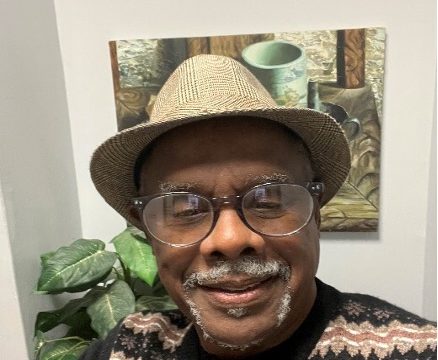
“Oh-oh, yes I’m the great pretender. Pretending that I’m doing well.
My need is such I pretend too much. I’m lonely but no one can tell.”
– The Platters
Warning! If you would rather not subject yourself to a brutally honest opinion about something, then you want to avoid my friend “Chris.” Here’s how he recently “burst by bubble”:
ME: I thought that the young lady “Roe” was outstanding and has a brilliant future as a singer. I especially like the way she….
CHRIS: Oh no! Sorry, but she really isn’t that talented. She’s okay but very limited as a singer. Look, I’ve been a professional vocalist all my life and know a great singer when I hear one and she’s not one.
ME: Well, uh, I…
CHRIS: Okay, I hope that I didn’t offend you!
Okay, for the rest of this narrative, I want you to use that exchange with “Chris” as a frame of reference. In the end, I’ll share the impact on my relationship with him.
Admit it or not, if you walk into a room with lot of people, say a wedding, birthday, homecoming, graduation, holiday celebrations, funeral, you name it, you can be sure that there are lots of dynamics at play, “pretending” and “pretentiousness,” among them. Let’s first discuss the pretenders in the room. We’ll examine “pretentiousness” in Part Two.
Now there’s a chance, a good one at that, that several of the following statements will resonate with you. People who….
…. pretend to like certain people but really don’t.
…. pretend to care but really don’t.
…. pretend to listen but often don’t.
…. pretend to like certain foods but really don’t.
…. pretend to value people from diverse races and cultures but really don’t.
…. pretend not to notice something physically distasteful about someone
but do notice it.
…. pretend to like certain kinds of music but really don’t.
…. pretend to believe in a certain religion but really do not.
…. pretend to trust someone but really don’t.
…. pretend to be financially well off but really aren’t.
…. pretend to be happy but really aren’t.
Now if you are intrigued by this list, maybe nodding, “oh yeah, that reminds me of “so and so,” take a look at the person in the mirror and ask him/her which ones describe you? Don’t run! Don’t hide! Don’t deny!
Ah, what pretenders we are. Yes, we all are. We speak and act to make it appear that something is the case when in fact it is not. As Shakespeare put it in As You Like It: “All the world’s a stage. And all the men and women merely players.”
In many ways our pretenders are our guardrails. We hold tightly to them to keep our true feelings from seeping out to expose the real us. We pretend in order to save face, ours and others, to preserve harmony, embarrassment and disappointment. As a result, we end up saying what we really don’t mean because we think it’s what others want to hear.
Most of our pretending occurs in public places. Said “Walt,” places of employment are replete with people pretending to go along just to get along. “They will show up at meetings, holiday events and retirement parties wearing fake smiles, issuing hallow congratulations to people they don’t respect with an eye on the clock and exit door.”
Now here’s the unavoidable question. Is pretending a form of lying? To me the critical variable is the “consequences” of both behaviors.
Truth is pretending and lying are acts of deception intended to mislead. Some argue that whereas lying is an immoral act, pretending is harmless with little or no consequences. Pretending is inbuilt and comes from a human need to “put on a face.” Lying, on the other hand, has ulterior motives and often has harmful consequences.
The solution? Although easier said than done, err on the side of just being yourself because authenticity can be liberating in that you no longer have to concern yourself with being found out. Of course, being authentic can be stunning and may result in your losing so-called “friends,” but gaining real friends who value people like “Chris” who “tell it like it is!”
As “Leslie,” a leadership consultant said to me recently, “As we mature, we apologize less and develop a take-it-or-leave-it mindset (less or no pretending). We can tell if someone is pretending when their behavior is inconsistent. They behave or speak differently depending on their surroundings or the people present.”
Oh, yes, back to the aftermath of my relationship with “Chris.” Well, it’s stronger than ever, made moreso by his lesson to me about authenticity.
In Part Two we’ll turn our attention to “pretentious” people and how to respond to them. Here’s a teaser:
Pretentious people try to make a good impression on others by acting as though they are more important, skilled, or intelligent than they really are. They love to brag, to show off what they know and look for admiration and attention. They like to name drop about the “important” people they know. They rarely talk about the accomplishments of others but are quick to talk about theirs.
After you’ve pondered that teaser, your “homework” assignment is to think about people in your personal or professional life (or both) who immediately come to mind that fit that teaser. And during the meantime, sing along with me…..
“My pretending days are over. Gonna leave acting to the stars in Hollywood.”
-The Dells
© Terry Howard is an award-winning trainer, writer, and storyteller. He is a contributing writer with the Chattanooga News Chronicle, The American Diversity Report, The Douglas County Sentinel, Blackmarket.com, co-founder of the “26 Tiny Paint Brushes” writers’ guild, recipient of the 2019 Dr. Martin Luther King, Jr. Leadership Award, and third place winner of the 2022 Georgia Press Award.


